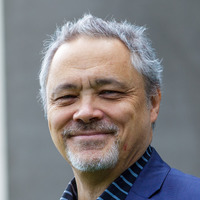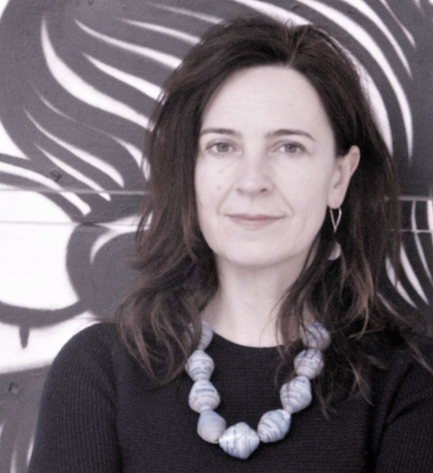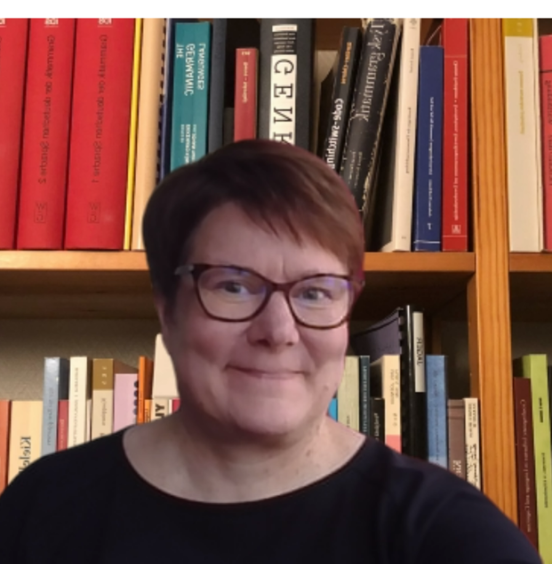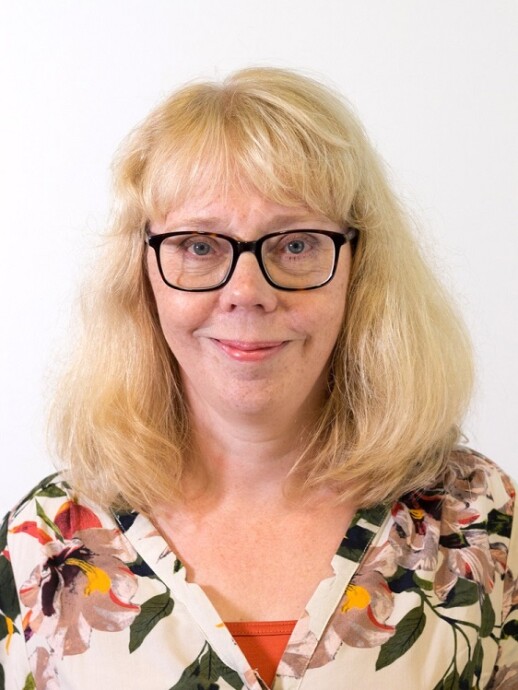Mats Fridlund
Associate Professor
University of Gothenburg

Mats Fridlund is Reader (docent) in Digital History at University of Turku and in History of Science and Ideas at University of Gothenburg. His research focus on science and technology studies, history of terrorism and digital humanities and he has held academic positions in China, Denmark, Finland, Germany, Sweden, UK and the USA. He just concluded the urban history research project “Things for Living with Terror: a Global History of the Materialities of Urban Terror and Security“ and is currently Principal Investigator of two digital humanities projects on Swedish terrorism: “Terrorism in Swedish Politics” and “The Cultural Imaginary of Terrorism”. He is born in Sweden where he studied engineering physics and history of science and technology at the KTH Royal Institute of Technology, from which Department of History of Science and Technology he received his PhD in 1999.
Read more: Mats Fridlund | University of Gothenburg (gu.se)
Abstract for Keynote:
Global Dialects of Urban Terrormindedness: How Terrorism is Changing Cityscapes in the Global South and North
How have urban institutions and individuals struggled with everyday living in cities threatened by various forms of political terror? In my presentation I propose to understand this struggle through the historical development of various urban forms of terrormindedness that capture how urban societies learn to live with terror through an ‘posthumanist’ domestication of the cityscape’s materialities. At least three forms of modern terrormindedness can be discerned beginning with the interwar airmindedness that tried to help citizens and city dwellers cope with the future threat of aerial bombing warfare. This was followed by the Cold War nuclearmindedness that prepared cities for the threat of nuclear weapons and which beginning with the 1970s threats of ‘urban guerillas’ was replaced by an increasing terrorismmindedness.
My presentation will use historical and contemporary case-studies to discuss the emergence of different global ‘dialects’ of urban terrormindedness – different local urban vernaculars based on a common global grammar. My historical exposition focus on London, Berlin and Chicago, while the contemporary examples take from New York, Stockholm, Lahore and Tokyo thus discuss experiences from both Global South and North cityscapes that through traumatic terrorism events have been adapted to cope with terror as a part of everyday urban life.
Maria Kaika
Professor in Urban, Regional and Environmental Planning
University of Amsterdam

Maria Kaika is professor in Urban, Regional and Environmental Planning at the University of Amsterdam’s (UvA) Faculty of Social and Behavioural Sciences.
She holds a PhD in Geography from the University of Oxford and an MSc in Architecture and Planning from the National Technical University of Athens. She has held tenured posts at the Universities of Oxford and Manchester and visiting and honorary professorships in several European Universities. Currently, she is Director of the Centre for Urban studies and Chair in Urban Regional and Environmental Planning at the University of Amsterdam. She is recipient of the 2017 Jim Lews Prize for the most innovate academic publication (with L Ruggiero), and of the 2021 European Award of Excellence in Teaching in the Humanities and Social Sciences. Her research focuses on urban political ecology, the relation between economic crisis and environmental and housing marginalization, and the embodied politics of infrastructures.
Since 2010, she has been the co-editor in chief of the International Journal of Urban and Regional Research and sits on the Editorial Board of European Urban and Regional Studies and Human Geography. Her work has received funding from national and international research councils and organisations (including the British Academy, and EU Framework and Marie Curie programmes).
She is author/editor of: Turning Up the Heat: Urban Political Ecology for a Climate Emergency (2023 Manchester University Press; with R Keil, T Mandler, Y Tzaninis); Class meets Land: The Embodied History of Land Financialization (with L Ruggiero; in print 2024 University of California Press); The Political Ecology of Austerity (2021, Routledge, New York; with R Calvario and G Velegrakis); Urbanizing degrowth: Five steps towards a Radical Spatial Degrowth Agenda for planning in the face of climate emergency (2023 Urban Studies Special Issue with Varvarousis, A, Demaria, F and March, H); In the Nature of Cities: urban political ecology and the metabolism of urban environments (2006 with N Heynen and E Swyngedouw; Routledge, London); and City of Flows: Modernity, Nature and the City (2005; Routledge, New York).
***
Publications list https://independent.academia.edu/mariakaika
Web page https://tinyurl.com/http-mariakaika-uva
***
Other Publications:
Austerity: an Environmentally Dangerous Idea
“Don’t call me resilient again”: the New Urban Agenda as Immunology
The refugees’ right to the centre of the city: City branding versus city commoning in Athens
Between the frog and the eagle: claiming a ‘Scholarship of Presence’ for the Anthropocene
Abstract for Keynote:
Urban Political Ecology – from epistemology to praxis for a climate emergency
In this talk, I shall focus on the recently published book: Turning Up the Heat: Urban Political Ecology for a Climate Emergency (Kaika, Keil, Mandler and Tzaninis (eds), 2023) to affirm the relevance of Urban Political Ecology (UPE) as an ontological, epistemological, and methodological intervention that can help address the socio-environmental emergencies of the twenty-first century.
Urban political ecology scholarship unsettles ‘traditional’ understandings of ‘cities’ as ontological entities separate from ‘nature’ and develops methods to examine how the production of settlements is metabolically linked with flows of capita, but also to more than-human ecological processes.
Acknowledging UPE’s rich intellectual history; a) I discuss how UPE tries to go beyond splitting research between social sciences and natural sciences; and b) I identify recently emerging ontologies and epistemologies within UPE that take the field forward. These address:
1. New forms of extended urbanisation.
2. Situated forms of knowledge production
3. More than human socio-ecological and economic practices
4. The uneasy interface between politics, policy, and academic debate over urbanization and climate change.
I argue that exploring UPE’s new ontologies, epistemologies and methods is not simply an academic exercise, that helps move an academic field forwards. It is also significant for making academic research relevant to politics; for moving towards new forms of action.
A heating planet is an emerging reality to which scholars must respond.
This Keynote is online lecture.
Leena Kolehmainen
Professor, German language
University of Helsinki
Leena Kolehmainen is professor in German language at the University of Helsinki, Faculty of Arts, Department of Languages (2023-). Her current research topics include multilingualism and German language in Finland. Leena Kolehmainen speaks about multilingualism in the cities.
Read more: Leena Kolehmainen — Helsingin yliopisto (helsinki.fi)
Paula Sjöblom
Docent, University Lecturer, Finnish, Finno-Ugric and Scandinavian languages
University of Turku
Since 2011, Paula Sjöblom has worked as Senior Lecturer of Finnish language in the School of Languages and Translation Studies. In 2008 – 2011 she was a lecturer of Finnish and business communications in the Turku School of Economics, and before that one year in the Helsinki School of Economics. Paula got her doctoral degree in the University of Turku in 2006. The subject of the dissertation thesis is Finnish company names.
Paula Sjöblom belongs to a multidisciplinary group of scholars from the Universities of Turku and Helsinki, the project of which is to study the linguistic and rhetoric choises in the slogans of Finnish municipalities. The project started in 2020 and is funded by The Foundation for Municipal Development.
Read more: Paula Sjöblom | University of Turku (utu.fi)


Abstract for Keynote:
Monikielinen kaupunki
This Keynote is in Finnish.
Leena Kolehmainen & Paula Sjöblom
Kaupungit ovat monikielisiä paikkoja, joita kielentutkimuksessa lähestytään monesta eri näkökulmasta ja monin eri menetelmin. Havainnollistamme esitelmässämme kielimaisematutkimusta, jossa tutkijat ovat kiinnostuneita visuaalisesta monikielisyydestä eli julkisessa kaupunkitilassa näkyvästä kielenkäytöstä: katukyltit, mainoskyltit, nimikyltit, valotaulut, tarrat ja graffitit avaavat näkökulmia kielten ja yhteiskunnan välisiin suhteisiin, kieleen demokratian välineenä, julkisen tilan kielelliseen esteettömyyteen, vallan käyttöön, kaupallisen toiminnan ideologioihin ja kulttuuriseen muistiin.
Raportoimme esitelmässämme ajankohtaisesta Turussa toteutetusta kielimaisemaprojektista, jossa olemme tutkineet kriittisesti kielivalintoja ja kielten käyttöä erilaisissa julkisissa sisä- ja ulkotiloissa (mm. katunäkymistä käräjäoikeuteen, terveydenhuoltoon ja museoihin). Näissä tiloissa esiintyvät esimerkit, joissa esiintyy alasaksaa, arabiaa, englantia, espanjaa, italiaa, japania, kiinaa, kurdia, latinaa, norjaa, persiaa, ranskaa, ruotsia, saksaa, suomea, tanskaa, turkkia, ukrainaa, pistekirjoitusta ja selkokieltä, havainnollistavat kaupunkisuunnittelussa ja kuntapalveluissa tarvittavaa kieliasiantuntijuutta.